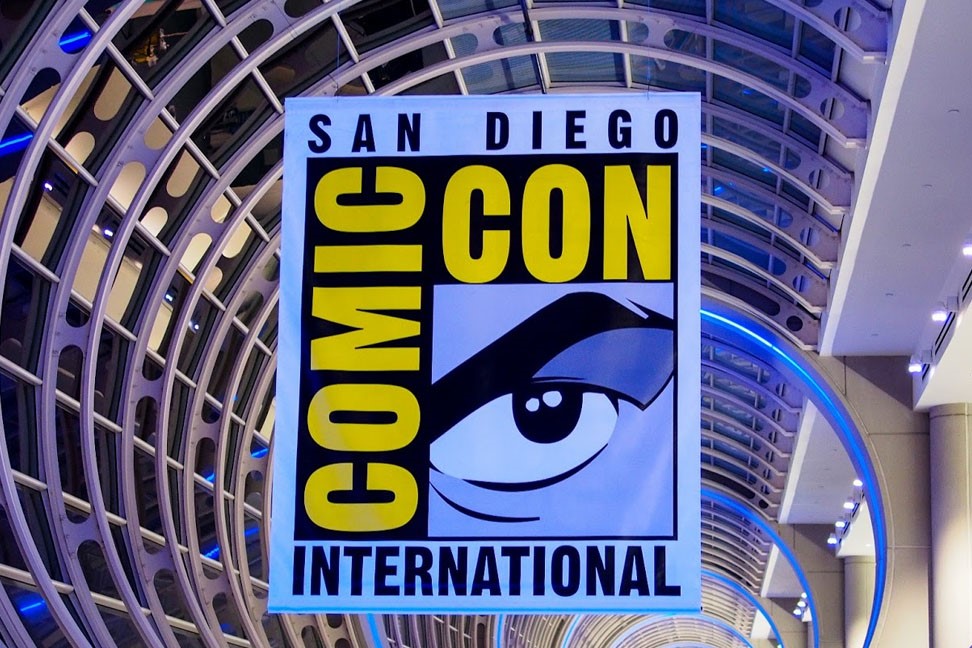 North Central Ohio was not the best place to stay up with all of the geeky happenings in the early 90s. Things changed with the inception of the internet, but before we were surrounded by AOL floppy discs, I was surrounded by farmland. There was one bright light — we got both Cleveland and Columbus tv stations. Usually there were different times for each, so a crafty geek could record one of the shows and catch a different show live (Time Trax, I am looking at you).
North Central Ohio was not the best place to stay up with all of the geeky happenings in the early 90s. Things changed with the inception of the internet, but before we were surrounded by AOL floppy discs, I was surrounded by farmland. There was one bright light — we got both Cleveland and Columbus tv stations. Usually there were different times for each, so a crafty geek could record one of the shows and catch a different show live (Time Trax, I am looking at you).
Things changed when I won tickets to a comic convention in Columbus in middle school. I was able to convince my Dad to take me, and we trekked down to the event early one weekend morning. I handed my hard-earned babysitting cash over to secure an entire set of Jurassic Park trading cards (mint condition) and two prints featuring Star Trek: TNG characters. I was in heaven — geek heaven. Back then, there was nowhere locally I could discuss my many interests and I even got to hear about other things that I had no idea about.
My brief introduction to the convention culture showed me about the diversity and inclusivity of the convention that allowed fans to discuss their passions in a safe environment. A current court case is bringing this matter into question, as a judge has granted an injunction that stops Salt Lake Comic Con from referring to itself as a “comic con” or “comic convention” — stating that only Comic-Con International (aka San Diego Comic Con, aka SDCC) should be labeled as such. This is problematic for many reasons.
This ruling in favor of SDCC literally closes the door in fan’s faces, as the San Diego event tends to sell out within an hour of tickets going on sale. So if you want to visit Comic-Con, you are not likely to get in. Many people are left in the waiting room, seeing multi-day passes sell out as they wait for their chance to get a single ticket in the lottery. This reporter has not gotten tickets since they introduced the lottery, and I’m a dream customer. I’d get a day ticket (with no discounts), pay for parking downtown, bring lots of cash (to purchase items at the Con) and never even think about attempting Hall H — this strategy served us well in 2013.
 Some convention areas may need a lot more help than others — no one will ever confuse SDCC for a convention in Iowa or Mississippi. There is a definite flavor to Conventions in different areas, but not every area has a good hook for a convention name — names like “Comic Con” or “Comic Convention” help include MANY interests under an umbrella. Comic con or comic convention is much easier to market for a small group of people in charge of major decisions. These people may not be in tune with all facets of geek culture in the area. Name, location or even programming could steer people away from a con named something specific versus a name like “comic con.” Creators will have to be extra careful to convey everything that might appeal to a wide audience, despite a name that pigeonholes the event.
Some convention areas may need a lot more help than others — no one will ever confuse SDCC for a convention in Iowa or Mississippi. There is a definite flavor to Conventions in different areas, but not every area has a good hook for a convention name — names like “Comic Con” or “Comic Convention” help include MANY interests under an umbrella. Comic con or comic convention is much easier to market for a small group of people in charge of major decisions. These people may not be in tune with all facets of geek culture in the area. Name, location or even programming could steer people away from a con named something specific versus a name like “comic con.” Creators will have to be extra careful to convey everything that might appeal to a wide audience, despite a name that pigeonholes the event.
There are a host of people who dream of attending San Diego Comic Con. However, with the lottery, the limited supply of rooms (including AirBnB) and flight costs getting to the event growing higher each day, it’s just not feasible for most geeks out there, especially if you’re taking a family. This ruling basically says “you’re only getting the Comic Con experience if you’re willing to pay the price.” Now, I’m going to say that SDCC hasn’t been a true comic con for many years — that’s it’s really more of an Entertainment Expo. And while the idea has a certain lure, most people are far better served by going to a local convention (especially to get your feet wet). But when SDCC bullies other conventions by taking them to court, SDCC shows how rude and far away from their con roots they really are.
You can do better, SDCC. Help others NOT by taking two inclusive words and making them exclusive…
